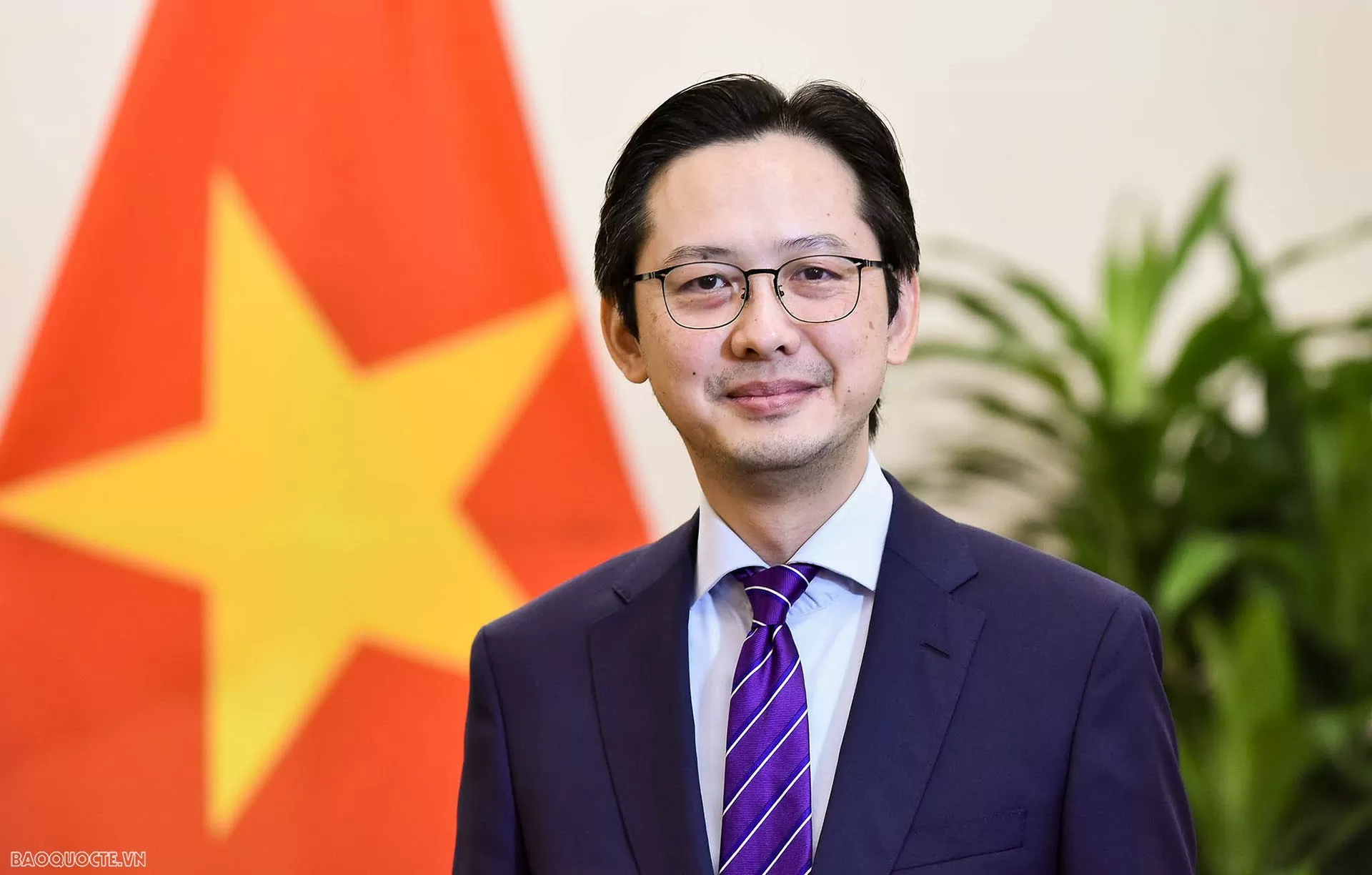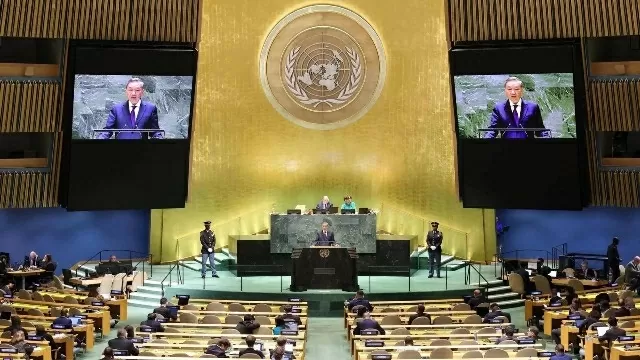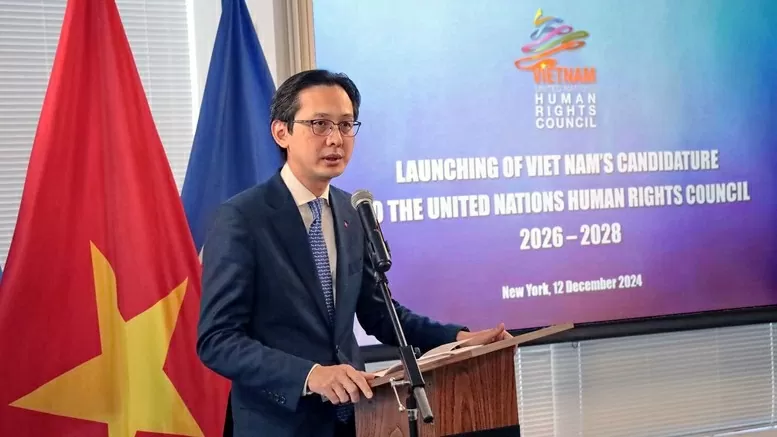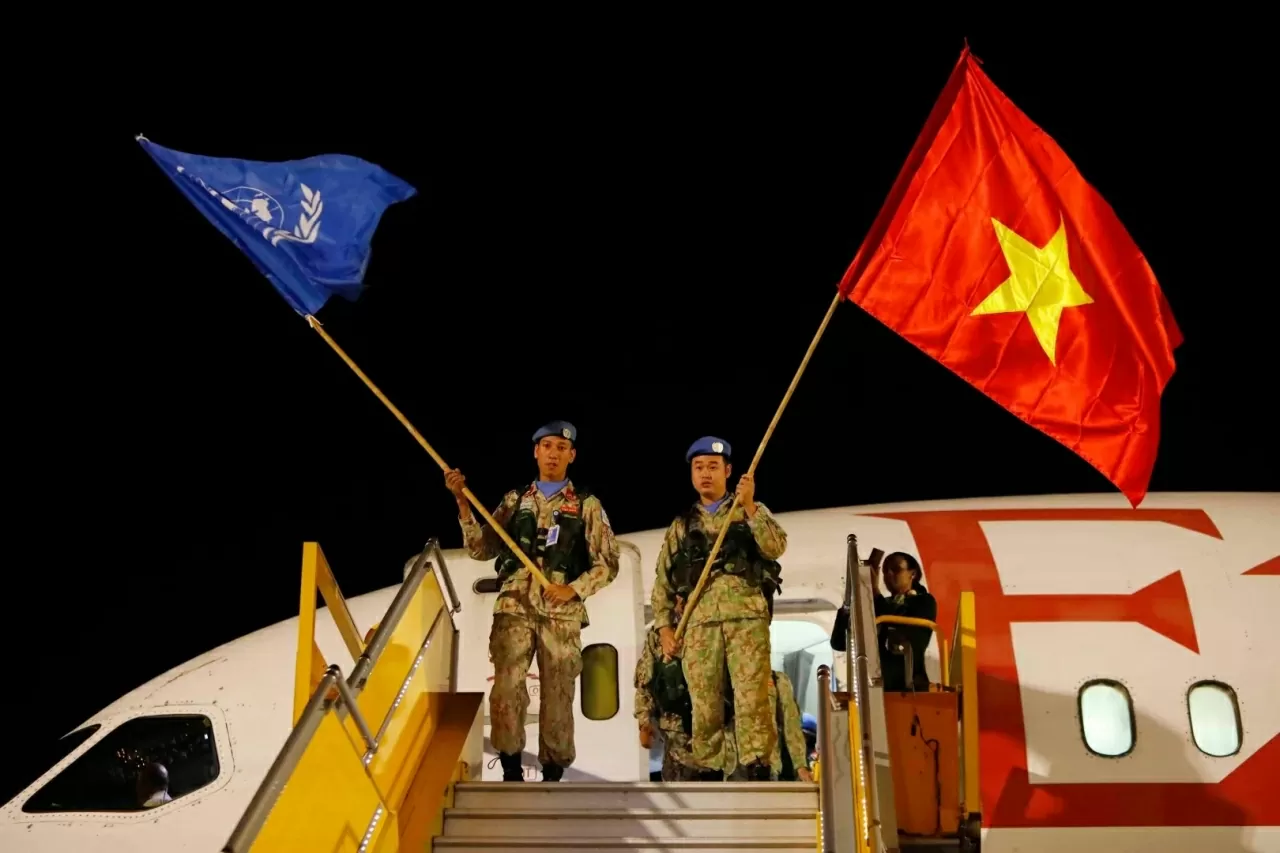
Vietnam and the United Nations: An 80-Year Journey from Past to Future
Latest
 |
| Deputy Minister of Foreign Affairs Do Hung Viet. (Photo: WVR) |
Over nearly eight decades of formation and development, the UN has steadily affirmed its central and indispensable role in the international system and multilateralism. In the face of today’s complex challenges and opportunities, the UN must now, more than ever, reposition its role and mission to foster cooperation and build a sustainable future.
80 years of shaping and strengthening the foundation of modern multilateralism and international cooperation
Established in 1945 after the pain and loss of the World War II, the UN is a manifestation of the aspiration for peace for all mankind and has become a bridge between different cultures, values and interests. In Article 1 of the UN Charter, the nations recognize the central role of the UN in harmonizing efforts to achieve the common goals of maintaining international peace and security, promoting friendly relations among nations on the basis of respect for independence, sovereign equality of states and fundamental human rights and freedoms.
On this basis, an international system based on law was established, setting important standards and benchmarks, forming a foundation, and promoting a shared understanding of peace and cooperation in international relations.
Since then, the United Nations (UN) has achieved significant success in fostering breakthroughs, development, and the expansion of global governance. In terms of peace and security, the UN has played a crucial role in preventing another world war.
The UN’s impact goes beyond merely preventing and resolving conflicts or managing crises—particularly during the Cold War era—to overseeing nearly 70 peacekeeping missions across various regions. These efforts have effectively contributed to restoring peace, ending conflicts, and supporting post-conflict reconstruction in numerous countries such as Cyprus, Liberia, Côte d'Ivoire, Sierra Leone, and Lebanon, etc.
In the field of development, since the 1960s, UN mechanisms have studied and identified global economic trends and their impact on social life. Based on these insights, the UN has played a key role in formulating and mobilizing resources to implement global agendas, including the Millennium Development Goals and the 2030 Agenda for Sustainable Development. Through its extensive network of specialized agencies and programs across many countries—such as UNICEF, FAO, UNDP, and WHO—the UN has been at the forefront of promoting cooperation and development support, not only in terms of economic growth but also in crafting and implementing policies on poverty reduction, gender equality, healthcare, the environment, and population issues.
 |
| General Secretary and President To Lam speaks at the United Nations Summit of the Future in New York, the U.S. on September 22, 2024. (Photo: VNA) |
In protecting and promoting human rights, the UN has played a crucial role in developing shared values and awareness of human rights, fostering dialogue and cooperation among nations. Since 1948, when the UN General Assembly adopted the Universal Declaration of Human Rights, this document has laid the foundation for legal frameworks that have shaped human rights protections over the decades. Key international conventions—including those on Economic, Social, and Cultural Rights; Civil and Political Rights; the Elimination of Racial Discrimination; the Elimination of Discrimination Against Women; and the Convention Against Torture—have become central instruments in advancing human rights globally.
The UN in a World of Turmoil
Today, the world both resembles and fundamentally differs from the landscape of eight decades ago. Rising geopolitical tensions, the resurgence of populism and extreme nationalism, and the use of force in international relations, combined with increasingly severe global challenges such as climate change, resource depletion, and pandemics, present threats that go beyond the control of any single nation.
At the same time, new trends and transformative processes—such as digital transformation, green transition, and the Fourth Industrial Revolution—are emerging, creating numerous opportunities while also presenting challenges. These developments highlight the need to strengthen global governance in these areas.
As a result, the global governance system has undergone significant shifts. The rise of emerging economies and the increasing need for closer international cooperation have led to the establishment of various regional and subregional mechanisms, as well as new alliances such as the G77, G20, APEC, BRICS, and SCO. These entities represent diverse interests and demands in managing and adjusting international relations. Consequently, the UN has, to some extent, had to "share" its role in shaping multilateral cooperation with these mechanisms, particularly in areas such as investment, finance, and emerging fields where governance gaps still exist.
However, with its strong foundation and continuously reinforced values over the past 80 years, the UN remains the largest, longest-standing, most successful, and most influential international organization—one that no other mechanism or institution has been able to replace. At the same time, the UN faces the challenge of reaffirming and enhancing its role and value in a rapidly changing world.
First, it is essential to continue nurturing and strengthening shared values as well as the principles and objectives of the UN Charter—thereby reaffirming multilateralism as a fundamental principle in international affairs.
Second, the UN must undergo reforms in both governance and institutional structures to enhance its effectiveness, increase democratic representation, and better meet the needs of all nations, particularly developing countries.
Third, the UN should maximize its unique role as a "crossroads" for connecting ideas and driving action within the global governance network, especially in shaping the future of critical fields such as artificial intelligence, digital transformation, and the green transition.
Vietnam – A Trusted Partner in the UN’s Development Journey
On September 20, 1977, Vietnam officially joined the UN, becoming the 149th member of the world’s largest multilateral organization. The importance of the UN and multilateralism in Vietnam’s foreign policy was recognized early on. As early as 1946, President Ho Chi Minh sent a letter requesting Vietnam’s admission to the UN, demonstrating both a strategic vision and Vietnam’s aspiration to integrate itself into the broader global community.
 |
| Deputy Minister of Foreign Affairs Do Hung Viet delivers a speech at the ceremony announcing Vietnam's candidacy for re-election to the United Nations Human Rights Council for the 2026-2028 term. (Photo: MOFA) |
Throughout Vietnam’s journey of nation-building, defense, and development, its cooperation with the United Nations has undergone significant transformation. From the post-war period, when Vietnam struggled with the heavy consequences of the war and an underdeveloped economy, to the era of international isolation and economic embargo, the country’s participation in the UN—and the support of UN agencies in Vietnam—provided crucial leverage and initial resources to gradually restore production, launch the Doi Moi (Renewal) reforms, and open doors for Vietnam’s expansion and global integration.
Today, Vietnam has made its mark across all areas of UN activities. Beyond holding key positions within the UN, Vietnam has made substantial contributions to shaping and developing cooperation mechanisms, laws, and common standards while introducing new initiatives. These include efforts to promote gender equality, children's rights, disease prevention, human rights protection in the context of climate change, and maritime security. Additionally, Vietnam has played a proactive role in piloting UN development system reforms.
For the first time, Vietnam has made tangible contributions in both resources and personnel to the United Nations. After more than a decade of participating in UN peacekeeping operations, Vietnam has deployed nearly 1,000 military and police officers to various UN missions worldwide. Additionally, the country has provided humanitarian assistance to crisis-affected populations through UN mechanisms. This marks a significant shift in Vietnam’s role within the UN and the broader multilateral system. From being a recipient of aid, Vietnam has transformed into a development partner and an active, substantive contributor to the UN’s global efforts.
 |
| On August 15, 2023, Vietnam Department of Peacekeeping Operations organises a ceremony to welcome home the Vietnam’s Engineering Unit Rotation 1 who successfully completed their mission at the UNISFA. (Photo: VNA) |
Nowaday, Vietnam and the international community face both opportunities for changes and pressing challenges. The UN serves as a crucial platform for Vietnam to mobilize ideas and resources needed for national development as the country accelerates its progress into a new era of growth and global integration. At the same time, Vietnam now possesses a stronger foundation in terms of international standing, capacity, and potential, allowing it to contribute more proactively and effectively to meet global expectations.
Therefore, multilateral diplomacy must be pursued decisively across all levels, sectors, and areas where Vietnam holds strengths, in alignment with the directives of the 13th National Party Congress and Directive 25-CT/TW of the Party Secretariat on enhancing multilateral diplomacy by 2030. Vietnam should actively drive initiatives, assume key leadership roles within the UN, expand its participation, and increase the number of Vietnamese experts working in the UN and other specialized international organizations.
At the same time, Vietnam must continue to introduce new initiatives in globally impactful fields such as the green transition, digital transformation, science and technology, and artificial intelligence. Alongside these efforts, it is essential to fully and effectively implement international commitments, ensuring close coordination, and consensus across the entire political system; continue reforming, streamlining, and optimizing Vietnam’s organizational structure to enhance the effectiveness of multilateral diplomacy.
With these directions, Vietnam will remain a committed partner of the United Nations in the years ahead, further strengthening the Vietnam-UN relationship.









